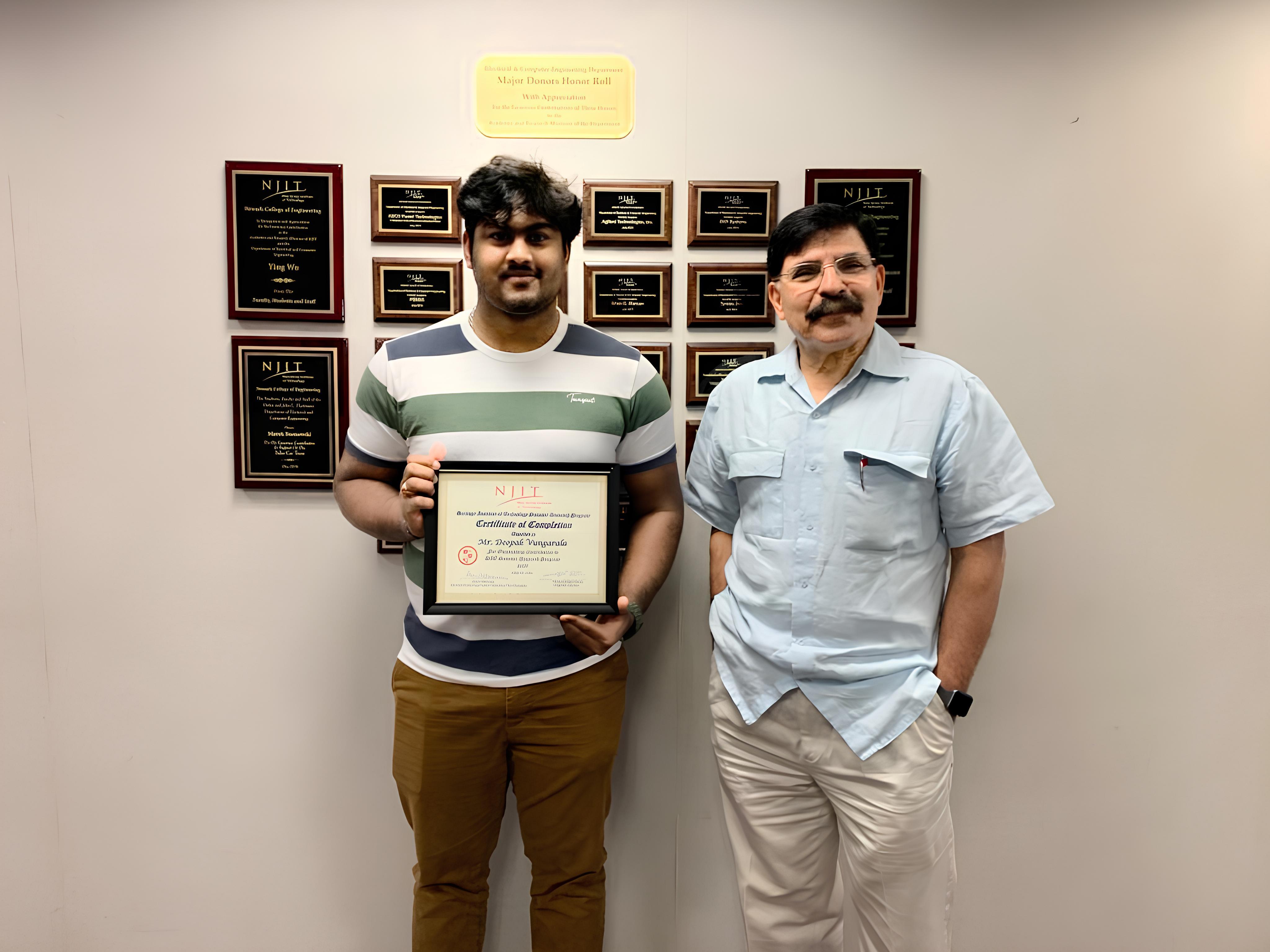Deepak Vungarala - ECE PhD Student of the Month - April 2024
Deepak Vungarala is a Ph.D. student at NJIT, originally from Vijayawada in Andhra Pradesh, India. He is fueled by his ambition and a robust work ethic, Vungarala's background is remarkably diverse. He has a passion for sports, having achieved accolades in boxing and Kung-Fu, both as a student and trainer. Additionally, his creative pursuits have seen him find success in poetry, further illustrating the breadth of his experiences. These varied interests have played a pivotal role in developing his resilience and determination.
His research at NJIT is pioneering, seeking to intersect artificial intelligence (AI) with hardware design. His goal is to streamline time-consuming processes within the silicon industry and develop innovative AI-driven circuitry. His ultimate ambition is to push the boundaries of AI for hardware optimization.
What would you say that could be the next big thing in your area of research?
In my area of research, AI stands out as the current frontier, yet it's encountering substantial challenges, particularly in hardware architecture, which limits its scalability and full potential utilization. This situation, however, opened a gateway to pioneering research opportunities. Specifically, the concept of processing-in-memory (PIM) architecture is emerging as a groundbreaking solution. It holds the promise of revolutionizing our approach to computing, much like the advent of transistors did in the early days. PIM technology is poised to address the limitations of traditional computing architectures by integrating processing power directly within memory modules, thereby significantly enhancing performance and energy efficiency. This innovation could well be the next significant leap in our field, opening up new horizons for AI applications and beyond.

You have decided to join a PhD program right after your MS study. What do you see are the values of a PhD degree?
Deciding to pursue a Ph.D. right after my master's was a big step, and honestly, it wasn't an easy one. My time researching with Professor Shaahin Angizi was eye-opening — he seriously believes in our ideas, and that kind of support makes you rethink settling for what you've already achieved. A Ph.D. program, to me, represents the pinnacle of academic achievement. It demands rigorous research, fostering a highly disciplined approach to problem-solving. The journey undoubtedly involves significant self-development, building a diverse skillset that ranges from critical thinking, problem solving skills to potentially leading and mentoring future researchers.
The most interesting aspect, however, is the opportunity to tackle unsolved problems. The most captivating aspect, however, is the intellectual challenge. The thrill of tackling unsolved problems and brainstorming innovative solutions is akin to being a scientific detective — a constant pursuit of knowledge that pushes the boundaries of the known.
During your MS study at NJIT, you had extensive experience doing research with faculty members. What do you say are the benefits for MS students to do research?
During my master's at NJIT, working closely with faculty like Dr. Cong Wang, Dr. Misra, and Dr. Shaahin Angizi in research projects was a cornerstone of my academic journey. This experience was invaluable, blending theoretical knowledge with practical application under expert guidance. It not only expanded my perspective but also sparked innovation and critical thinking. For master's students, engaging in research benefits personal, academic and professional development, offering a unique opportunity to learn from the best and push the boundaries of what we know. Also, the perks of research and publication always look good in a resume.